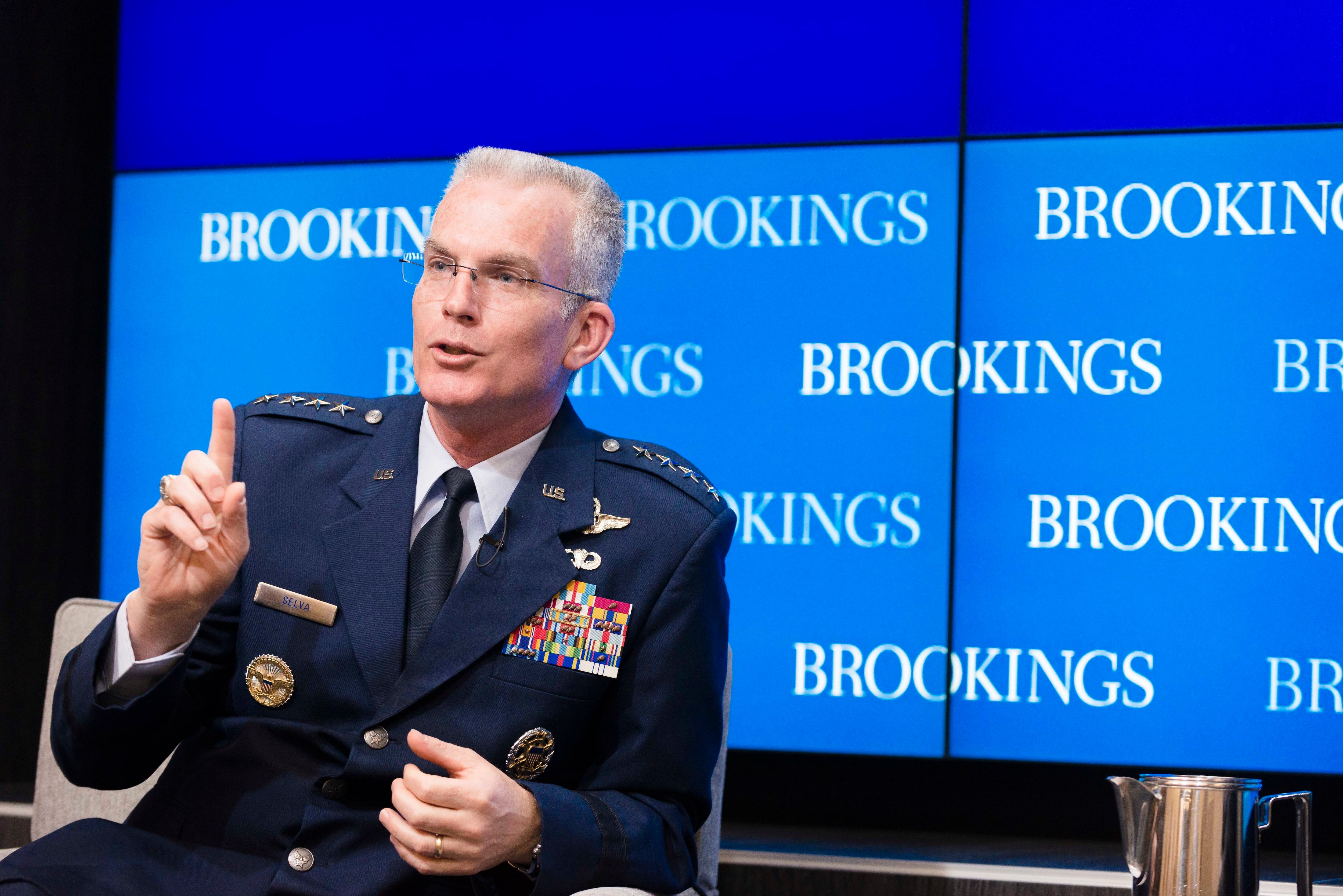WASHINGTON — As lawmakers debate a proposal to start a new military branch dedicated to space, House Armed Services Committee Chairman Mac Thornberry said the time for Congress to act is now.
“I don’t meant to be too dismal, but I’ve been in too many classified briefings,” Thornberry, R-Texas, told reporters Thursday. “As I look at what Russia and the Chinese are doing, we don’t have a lot of evolutionary time to sit and hope we kind of drift in the right direction. We are more dependent than anybody else on space.”
The comments come as lawmakers work to reconcile the House version of the 2018 National Defense Authorization Act — which proposes a Space Corps — with the Senate’s version — which takes a wholly different approach. The Senate NDAA proposes a new position of chief information warfare officer, reporting directly to the defense secretary, to oversee military cyber and space policies.
The idea behind the new branch is that America’s military has become evermore dependent on satellites for communication, intelligence and navigation, and that it must reorganize to best counter foes already working to exploit that vulnerability.
Just as the Air Force naturally evolved out of the Army Air Corps decades ago, so too must space evolve past the air domain into a domain of its own, with its own acquisitions programs, culture and unique war-fighting abilities, Thornberry said.
“I think there is no disagreement among anybody, space is not going well, so the only conversation to have is: What’s the right answer?” Thornberry told reporters Thursday. “Our view is, culturally, you have to have some separation to have priority on resources, war fighting.”
The HASC-passed NDAA would direct the Defense Department to establish a Space Corps by Jan. 1, 2019. It would fall under the Department of the Air Force but operate as an independent service, similar to the Marine Corps’ relationship to the Department of the Navy.
That language, which came from House Strategic Forces Subcommittee Chairman Rep. Mike Rogers, R-Ala., and ranking member Rep. Jim Cooper, D-Tenn., passed in the House version of the NDAA despite opposition from the White House, Defense Secretary Jim Mattis and Air Force Secretary Heather Wilson.
RELATED

Rogers’ counterpart in the Senate — Sen. Deb Fischer, R-Neb. — is not supportive, and associates herself with Wilson’s opposition, while Florida Democrat Sen. Bill Nelson, a former astronaut, has repeatedly dismissed the idea.
“I’m not convinced that we need it,” Fischer said of the Space Corps proposal. “If you create cyber as a combatant command and a Space Corps as this other silo out there, I worry: Where’s the integration?”
House Tactical Air and Land Forces Subcommittee Rep. Mike Turner, who led congressional opposition in the House, said he agrees the military is vulnerable in space and that it is bureaucratically hamstrung to respond. But he wants to see more work from Congress on the issue before an entirely new service is created.
“Currently, we don’t know what it costs, we don’t know what it would be, how it would be organizationally, what would be included, what would not be included,” said Turner, R-Ohio. “And we don’t know, most importantly, how a Space Corps would solve all these problems. When you take the same people, and assign them the same job, only you give them different titles, you haven’t necessarily improved the system.”
Joe Gould was the senior Pentagon reporter for Defense News, covering the intersection of national security policy, politics and the defense industry. He had previously served as Congress reporter.





